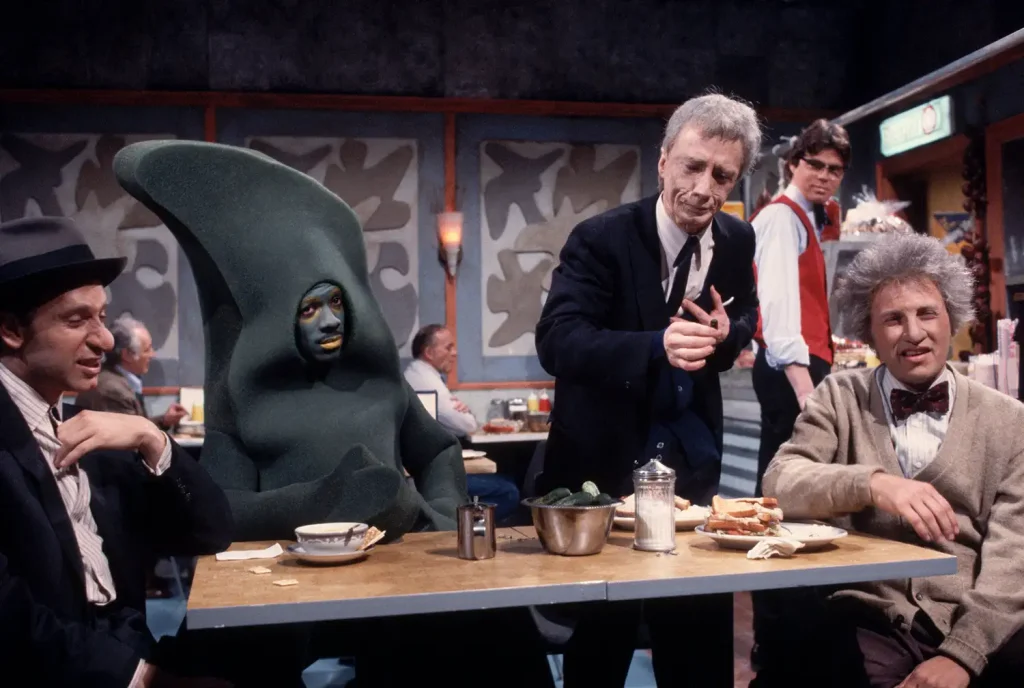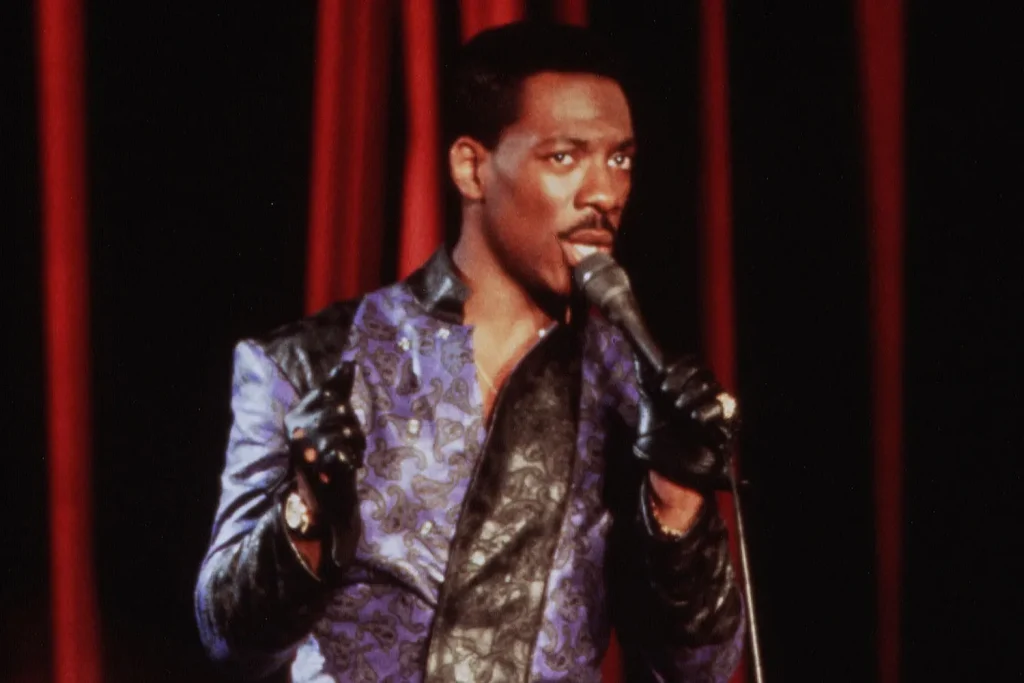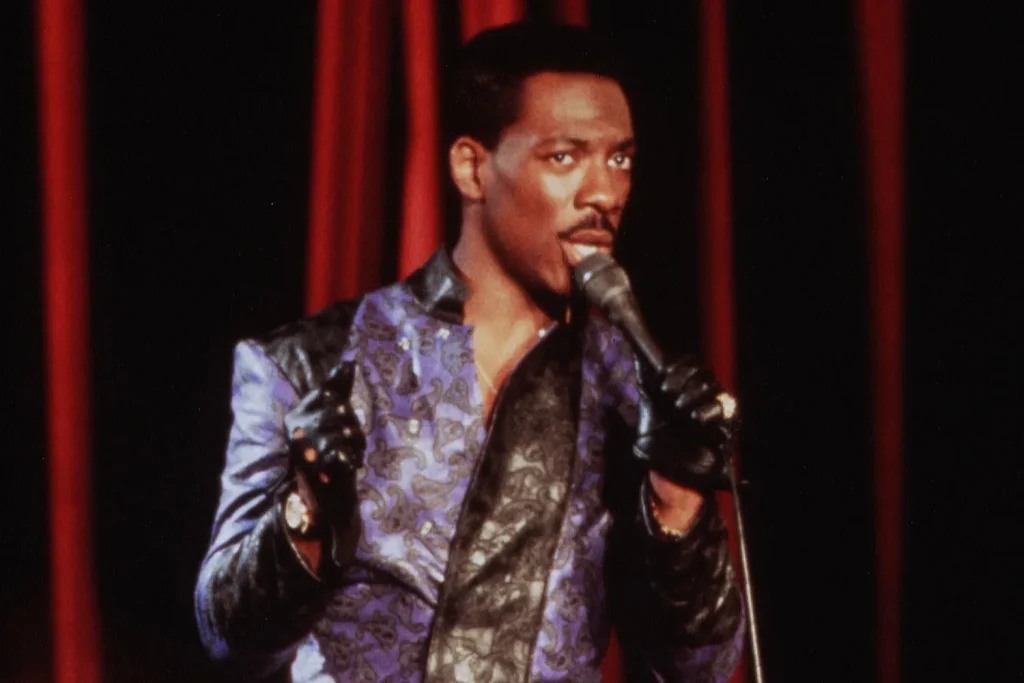Eddie Murphy Opens Up About Surviving 50 Years in Hollywood, Fame, Temptation, and the One Secret He Credits for His Entire Career: “I Have Always Been My Biggest Fan”
Eddie Murphy has never been shy about being funny. He was barely old enough to legally drink when he stepped into the national spotlight on Saturday Night Live, turning a sketch show into a cultural runway for characters, voices and stories that still echo today. But nearly 50 years later, the man who made the world laugh with youthful swagger now speaks with the calm wisdom of someone who actually survived a world that chews people up faster than it celebrates them. “In a business where people come and go,” he said in one of his most striking recent reflections, “most people don’t get 50 years. My most important blessing is that I love myself. I’ve always been my biggest fan.”

There is a gravity under that sentence that feels earned, like a veteran who has seen the battlefield from every angle. Hollywood is glamorous until you sit close enough to see what fame costs. Murphy has watched countless peers burn bright and collapse, victims of the same environment that once crowned him a generational star. He had the kind of rise most dream about but almost no one sustains. By the time he was 21, he was already considered one of the most electrifying comedians in America. By 23, he was headlining movies. By 30, he had created an entire gallery of beloved characters — from Axel Foley to the Klumps — each one proof that his instinct for entertainment was something pure and unforced. And yet, through the wild success, the public pressures and the private challenges, he never let the applause become the only thing holding him up.
His quote reads almost like a manifesto: a declaration of self-worth that was often missing from the stories of the stars who didn’t make it. Murphy doesn’t pretend he was immune to the temptations around him. He simply chose differently. He has said many times that despite being surrounded by every distraction imaginable — the parties, the dangerous highs, the people who appear and disappear depending on your box office numbers — he never wanted to lose control of himself. That decision turned out to be his greatest professional strategy.
When Murphy talks now about being his own biggest fan, it isn’t ego. It’s survival. The lesson, he suggests, is that you can’t wait for an industry to define your value. There will always be a new star, a bigger movie, a louder headline. Careers are built on applause until the day the cheering stops. The ones who last are the people who love their own craft long enough to still enjoy it even when the lights dim.

That philosophy becomes even more powerful when you remember how early the world tried to own him. A young comedian, barely through adolescence, suddenly becomes a national obsession. Every joke was measured. Every movie deal analyzed. The laughs, which once came freely on a stage with a microphone, were now packaged around him like a product. For many, that’s when things break. He was not exempt. There were years when critics turned on him. Years when the public was louder about what they didn’t like. Years when tabloids wanted a fall more than they wanted another Eddie Murphy punchline.
But he did something very rare. He didn’t rush to fill the silence. He stepped away when he needed to. He raised children. He lived quietly. He let the noise fade before returning on his own terms. And when he came back, whether in Dolemite Is My Name or Coming 2 America, he came back with a sense of joy, not desperation.
That joy matters. It explains how he can stand today with half a century behind him and still speak with pride rather than bitterness. He didn’t spend his entire adulthood chasing the high of the first laugh. Instead, he protected the person who existed before the fame. And that may be the most powerful part of his reflection — the idea that protecting your talent starts with protecting yourself.

Murphy’s presence in Hollywood is different now. He is not the young comic who shocked audiences with boundary-pushing routines. He is a respected elder statesman of comedy — not because he calls himself one, but because younger artists treat him that way. When Kevin Hart talks about him, he calls him a blueprint. When comedians describe their influences, Murphy’s name sits beside Richard Pryor and George Carlin. And when the public imagines what a career with longevity looks like, he stands as the rare example of someone who aged into legend rather than being swallowed by it.
That doesn’t mean he’s done. If anything, his self-reflection feels like chapter one of a late-career renaissance. He still loves performing. He still loves acting. And when rumors surface that he might return to stand-up, the excitement is electric. Why? Because audiences know he doesn’t need to do it. If he steps on stage now, it will be because he wants to — not because he’s trying to hold on to something that has slipped away.
He also speaks with unusual honesty about fame itself. Not the glamorous version, but the real one — the version where people project their expectations onto you, where the wrong mistake becomes a headline, where the wrong crowd can derail a career overnight. “People come and go,” he said, but he never says it with bitterness. He says it with clarity. He knows why they disappear — some lose themselves to excess, some to insecurity, some simply weren’t built for the pressures of being watched.
His advantage was perspective. For all the wealth, status, and acclaim, he never forgot that it was supposed to be fun. That sounds simple until you notice how many performers lose all joy in pursuit of staying relevant. His love for himself meant loving the craft more than the spectacle around it. That allowed him to evolve — from the loud young comic with the leather suit, to the family comedy star, to the quiet observer who now speaks thoughtfully about the world that made him.
And it’s why there is something deeply moving about his gratitude. He doesn’t credit luck alone. He credits discipline, self-respect, and an understanding that fame is never worth your peace. For every megastar who cracked under the pressure, Murphy stands as a reminder that you can play the Hollywood game without becoming its casualty.
You also hear a trace of humor in the way he talks about his own legacy. He knows how unusual it is that he’s still here, still respected, still in control of his story. “Most people don’t get 50 years,” he says, not as a boast, but an acknowledgment of the truth. Longevity isn’t normal. It’s earned.
Today, Murphy sits in a rare seat — someone who entertained generations without losing himself to the industry that fed him. His blessing is not just talent. It is self-awareness. It is inner confidence. It is the quiet ability to say: I was enough before the fame, and I will be enough after it.
That is why people still listen when he speaks. That is why his interviews now feel more like life lessons than celebrity promotion. And that is why, when he looks at his own career, he does not congratulate the system for keeping him around — he thanks himself for never abandoning the person behind the superstar.


